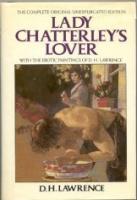Summer Reading
Published by marco on
 The gap left by Dan Brown’s writer’s block needs to be filled by something as you lie on a beach this summer. There are only so many different versions of Digital Fortress under various names and publishers you’re going to read until you notice that they’re all the same book and that he hasn’t magically written a new novel you haven’t heard about. In steps Playboy with its 25 sexiest novels ever written, which is chock full of books to take the beach with friends and family. It’s a pretty balanced list, including old classics like Lady Chatterly’s Lover to newer classics like Lolita. There are a bunch from the late 20th century and even a couple from this one. The list is almost exclusively American erotica, from American authors (Norman Mailer, Henry Miller, Philip Roth and others), but at least includes some female authors (Erica Jong, Judy Blume, Anne Rice and others). The famous Story of O is the French exception to the American rule.
The gap left by Dan Brown’s writer’s block needs to be filled by something as you lie on a beach this summer. There are only so many different versions of Digital Fortress under various names and publishers you’re going to read until you notice that they’re all the same book and that he hasn’t magically written a new novel you haven’t heard about. In steps Playboy with its 25 sexiest novels ever written, which is chock full of books to take the beach with friends and family. It’s a pretty balanced list, including old classics like Lady Chatterly’s Lover to newer classics like Lolita. There are a bunch from the late 20th century and even a couple from this one. The list is almost exclusively American erotica, from American authors (Norman Mailer, Henry Miller, Philip Roth and others), but at least includes some female authors (Erica Jong, Judy Blume, Anne Rice and others). The famous Story of O is the French exception to the American rule.
Some are really short—Rapture is only 116 pages long—but most are normal-length novels. A lot of them date from the thirties, like Tropic of Cancer, but some come from the end of the 20th century, like The End of Alice. Don’t kid yourself—an “old” sex book stands just as much a chance of being good as a “new” one. The ability to titillate lies more with the author’s imagination and writing prowess than with the society or era in which they wrote[1]. There’s also something for everyone in the lists, ranging from first-time stories (Forever) to bisexual (Brass) to bondage (O and Carrie’s Story) to just comical (Candy) and very weird (Crash[2]).
Click a book to get a description and a “sample” to see if it’s the one you’ll be taking on vacation with you this summer. You might as well, it’s not like you waiting around is making Dan Brown write any faster.